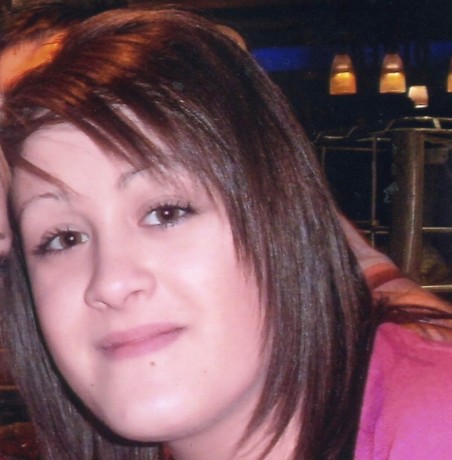
TRAGIC DEATH…Julianne Williams
AN INQUEST into the death of an eighteen year old Enniskillen woman, who had been drinking and taking prescription and illegal drugs hours before she was found dead, has been unable to tell her family how she died, recording her cause of death as ‘unascertained’.
Julianne Rose Williams was found lifeless by two friends in her apartment at Irvines Crescent in Enniskillen on August 21 last year.
Despite the quick arrival of the paramedics, who worked on her for 20 minutes, she was pronounced dead at the scene.
A post mortem examination was carried out on the young woman’s body but despite finding quantities of diazepam, cannabis and alcohol in her system none were of a high enough concentration to have caused her death, the deputy state pathologist Dr James Lynas told the inquest.
There were a number of drugs found present in her bloodstream including diazepam, which was well above the therapeutic range but below fatal range. The pathologist also said she may have inhaled, or snorted a drug, possibly subutex, but no traces of this were found in her system.
There was no evidence of natural disease in her body although an ECG from a year previous revealed minor heart irregularities.
The pathologist recommended first degree relatives of Julianne should submit themselves for cardiac screening in case an abnormal heart rhythm runs in the family.
The post mortem also found a number of trivial bruises on her body but Dr Lynas told the inquest the exact cause of death in this case was ‘obscure’ and ruled out any suggestion of foul play in the tragic death of Julianne.
Suggestions were made that the teenager may have self harmed, with the pathologist noting some lines of scar tissue on her body.
Although police initially treated Julianne’s death as suspicious after the post mortem they decided there was nothing suspicious about the case.
Constable Carla McCann confirmed to the coroner it wasn’t unusual to initially treat a sudden death like this as suspicious.
The coroner asked the pathologist how common is it not be able to ascertain a case of death? Dr Lynas said it’s quite uncommon only being recorded in about two per cent of cases.
“Clearly she had a number of significant problems in her short life” the coroner said.
“She seems to have abused a number of drugs including cannabis, speed and amphetamines,” he continued also referring to her receiving treatment for her mental health.
The inquest heard from Joshua Eaton, a friend of Julianne’s, who had been staying with her in the days prior to her death.
Recounting the last hours of Julianne’s life he said how the previous morning he’d gone into town in a taxi and later went drinking in Wetherspoons where they were joined by Julianne.
He said Julianne had some diazepam tablets and they all took some before returning to her flat in Irvines Crescent where they smoked a joint of cannabis.
When he woke the next day he said Julianne was sitting on the sofa motionless and she was cold when he touched her, causing him to raise the alarm.
He told the inquest as far as he knew Julianne took cannabis and diazepam everyday.
Coroner Mr Kitson described Julianne’s death as sad, tragic and untimely and said he realised his findings would not give much closure to her grieving family.








